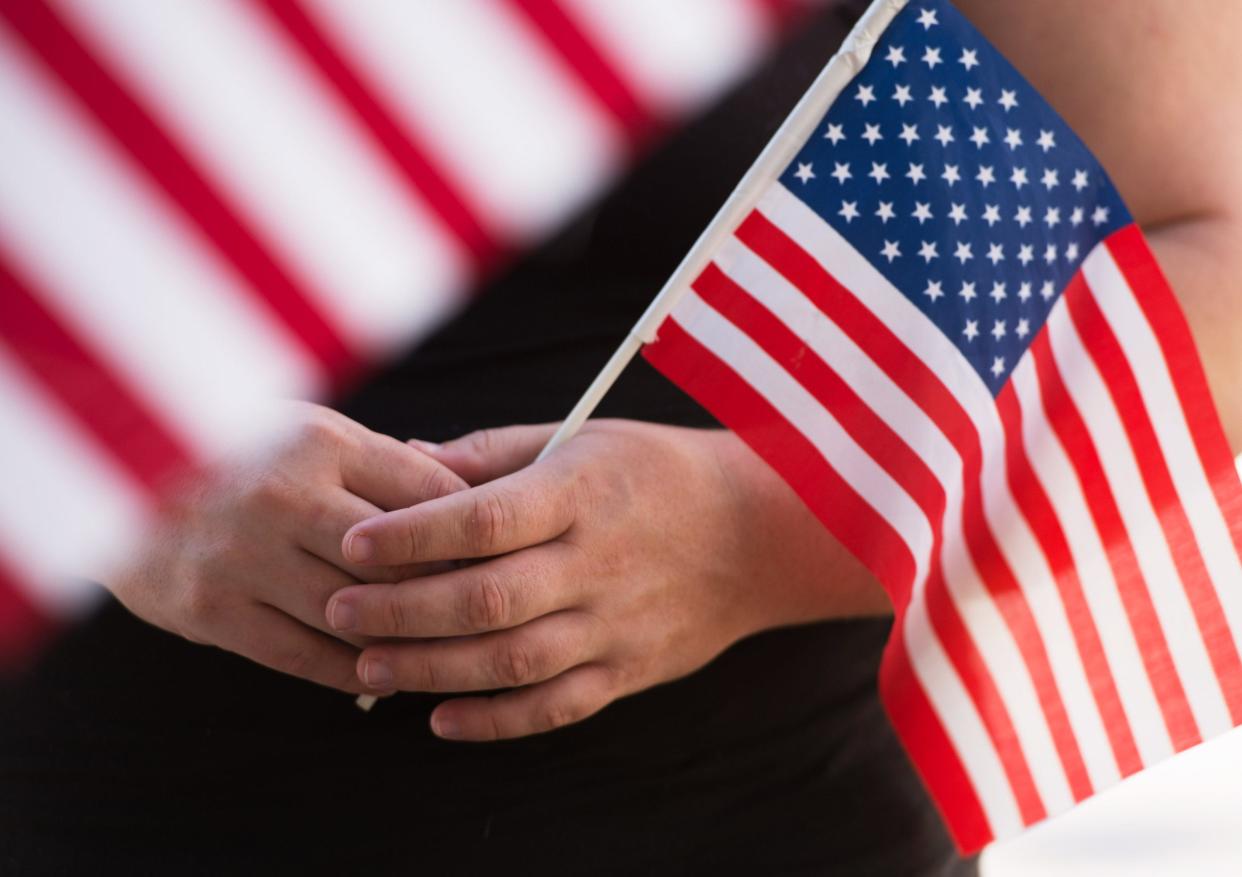Fourth of July US Constitution lesson in right-size democracy

- Oops!Something went wrong.Please try again later.
You didn’t invite me to your Fourth of July picnic this weekend, but I still asked myself, “What can I bring?” How about a little American history while you flip burgers and contemplate a new era of ruthless minority rule for this great nation? The lesson includes a prescient remedy for our dilemma.
James Madison endorsed the United States Constitution only after his colleagues asked him to write a series of amendments that would address the civil liberties the original document neglected. We know those first 10 ratified amendments as the Bill of Rights, but did you know that Madison originally proposed 14?
Actually, his first draft, submitted to and passed by the House of Representatives on June 8, 1789, had 17 articles. The Senate discarded two articles entirely. One was later ratified as part of the 14th amendment. The remaining 15 were consolidated into 12 and sent to the states for ratification. Ten were accepted in short order.
Madison’s first two articles were not immediately ratified by the states. Madison’s original second amendment, which delays any congressional raises until after the next election, was ratified in 1992 as the 27th Amendment.
Twelve of Madison’s proposed 14 amendments have now been adopted. It’s time to consider his first First Amendment. Madison proposed that congressional districts be kept small — in his draft, “there shall be one representative for every 50,000 persons.”
Rep. Peter DeFazio currently represents 724,900 persons. Our Lane County commissioners each represent approximately 50,000 persons. Madison envisioned the so-called people’s house on Capitol Hill to be connected much more directly to the people who choose their leaders.
Yes, the House of Representatives would need to be remodeled to accommodate almost 7,000 members, but those representatives would have probably knocked on your door at some point, personally asking for your vote. They wouldn’t live inside a cocoon of incumbency. Anyone willing to knock on enough doors could challenge them.
None of the Founding Fathers anticipated the emergence of two powerful political parties. Fundraising and name recognition are controlled by a duopoly. Its stranglehold prevents innovation and breeds cynicism.
Madison’s enumeration of representatives wouldn’t change the Senate but it would address fix the Electoral College. The least populated states would see their influence in presidential elections cut in half or more.
Following Madison’s original genius would enable regular burger-flipping people to care about politics and the processes that control their lives. It would right-size our representative democracy.
When we see a candidate or an elected official on television, we think we know them. But deep down, we understand that we don’t know them at all. Maybe more significantly, we accept that they don’t know us. They can’t. There are too many of us and too few of them.
Madison anticipated this problem, even if he never could have imagined all the trouble it has spawned. So raise a glass for James Madison, visionary and original defender of your rights as a citizen of these (barely) United States.
As a postscript, you’re probably wondering about Madison’s one remaining original article that was rejected at the outset. There’s good reason to believe the current majority of the Supreme Court has read Madison’s original Article 16. It prohibits any of our government’s three branches from doing work delegated by the Constitution to the other two.
Roe was struck down because laws should be made (and rights expanded) by the legislative branch. The Supreme Court ruled against the EPA this week because the legislature should not cede its rule-making authority to the executive branch. You may not like those rulings, but they both point to this: We need more and better laws to have a functioning democracy. We may even need more lawmakers.
Don Kahle (fridays@dksez.com) writes a column each Wednesday and Sunday for The Register-Guard.
This article originally appeared on Register-Guard: 4th of July US Constitution lesson in right-size democracy

